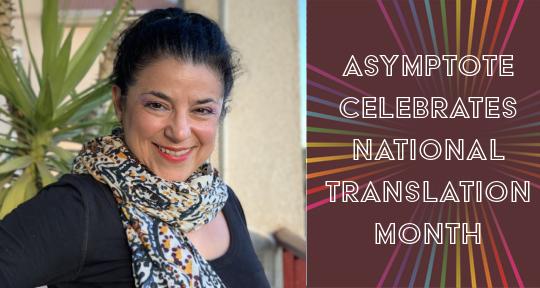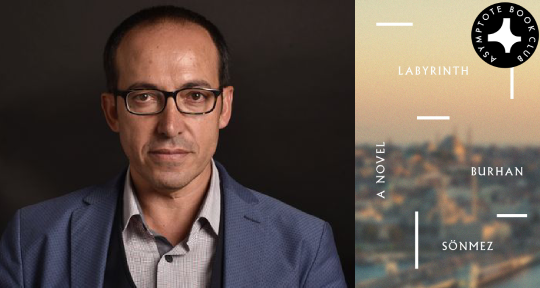Though Asymptote has made it a point to celebrate literary translation no matter the time of year, we’re still pretty thrilled that there’s a whole month dedicated to the cause. As we draw towards the end of National Translation Month, Asymptote is taking the opportunity to bring together essential components that complete the cycle of literature as it travels from one language to the next, with the intention of recognizing the meticulous, purposeful, and intimate labour invested into a text during this peregrination—from conception to publication. We have asked four valued members of the literary community, spanning the globe, to bring us their take on translation and its gifts.
In this third feature, we are delighted to present an original essay by Ümit Hussein, an award-winning translator (and past Asymptote Book Club contributor!), who translates from the Turkish to the English. Her translation of Burhan Sönmez’s Istanbul Istanbul won the EBRD prize in 2018 and her translation of Nermin Yıldırım’s Secret Dreams in Istanbul is forthcoming from Anthem Press. Born and raised in North London in an extended Turkish Cypriot family, Hussein sees her role as translator reaching beyond the linguistic, in order to act as a cultural ambassador and elucidate a different cultural context for English readers. Here, she explains her own response to the question of why translation is essential to promoting literature and bringing about change.
When I was asked to write this article, my brief was to make it about any aspect of translation I thought was important. Unaccustomed to so much freedom, I set about wracking my brain. One of the first thoughts that crossed my mind was, why do we translate at all? Given that it is widely believed that a translation can never be equal to the original; that a good translator is one that is completely invisible; that the translation must read as though written in the target language; that we are branded with the label traduttore traditore; that it is so poorly paid; and that, harshest of all, a certain award-winning writer, who translated fiction before she became a novelist, said in an interview, “For me it’s a waste of time . . . I want to write, not waste time with translations.” (Fortunately for this author, her translator, whose translation won her the prize, does not share her views.) What, then, motivates us to lavish so much love, care, time, and energy on what is frequently treated as the poor relative of “real” writing? READ MORE…




